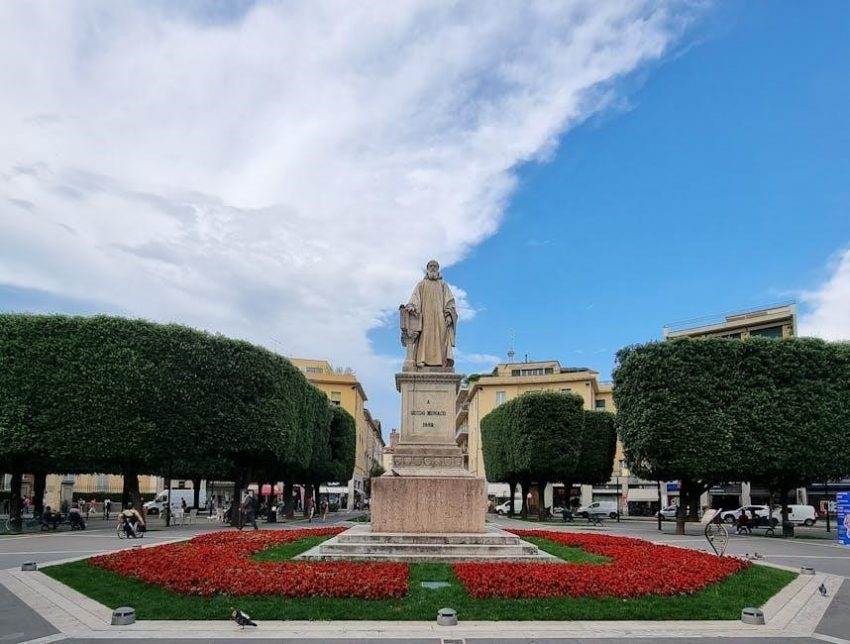Guido Orefice is a fictional character in the film Life is Beautiful, portrayed by Roberto Benigni. He is a Jewish-Italian man living in 1930s Italy, known for his humor, optimism, and imaginative spirit. The story follows his journey as a waiter, bookstore owner, and loving father, highlighting his resilience and creativity in the face of adversity.
1.1 Overview of the Character
Guido Orefice is a charming, imaginative, and optimistic Jewish-Italian man living in 1930s Italy. Portrayed by Roberto Benigni, he is a waiter-turned-bookseller who captivates those around him with his humor and creativity. Guido’s cheerful nature and ability to find beauty in life make him a unique and endearing figure. His journey from a carefree romantic to a protective father highlights his resilience and resourcefulness. Despite the challenges of the time, Guido’s enthusiasm and magical thinking inspire those around him, making him a memorable and heartwarming character in the story of Life is Beautiful.
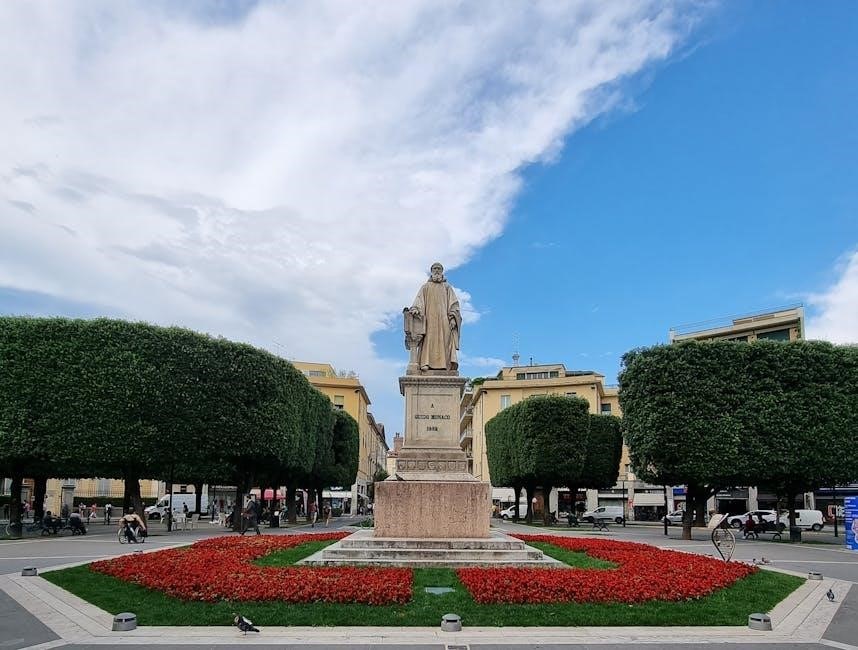
The story of Guido Orefice is set in 1930s Fascist Italy, a time of rising anti-Semitism and political upheaval. As a Jewish-Italian man, Guido faces the increasing oppression of Nazi Germany’s influence. The narrative unfolds against the backdrop of World War II, where Jewish citizens like Guido are subjected to persecution and eventual internment. Despite the looming darkness, Guido’s imaginative spirit and humor provide a stark contrast to the harsh realities of the era. The film captures the transition from carefree life to the horrors of war, offering a poignant reflection on hope amidst adversity.
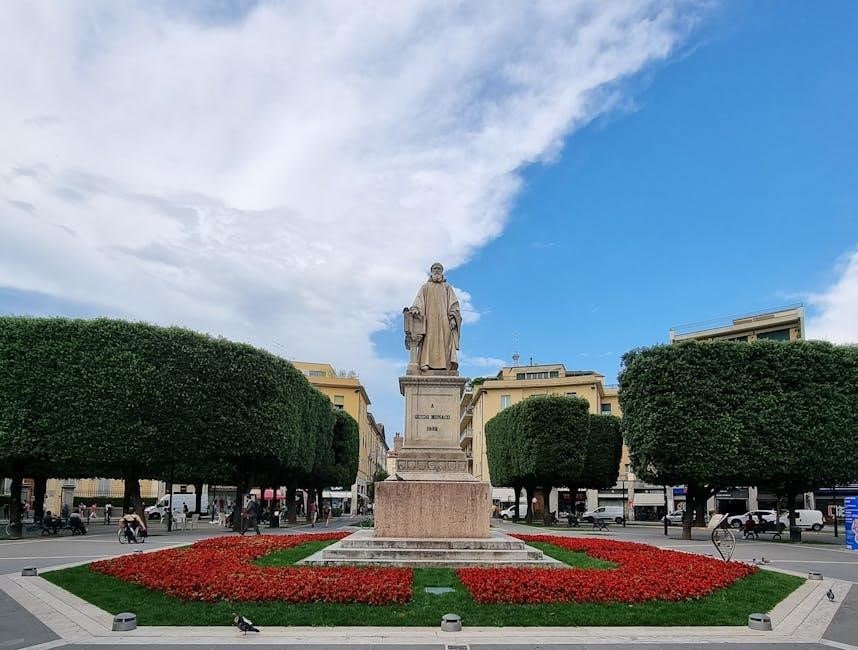
The Film “Life is Beautiful”
1.2 Historical Context of the Story
The story of Guido Orefice unfolds in 1930s Fascist Italy, a period marked by rising anti-Semitism and political turmoil. As a Jewish-Italian man, Guido faces increasing oppression under Nazi influence. The narrative is set against the backdrop of World War II, where Jewish citizens like Guido endure persecution and eventual internment. Despite the looming darkness, Guido’s imaginative spirit and humor contrast sharply with the harsh realities of the era. The film captures the transition from a carefree life to the horrors of war, offering a poignant reflection on hope amidst adversity.
2.1 Background and Production of the Film
Life is Beautiful is a 1997 Italian comedy-drama film directed by and starring Roberto Benigni, who co-wrote the screenplay with Vincenzo Cerami. The film was produced in Italy and features a mix of Italian and some German dialogue. It combines humor and drama to tell the story of Guido Orefice, blending lighthearted moments with the harsh realities of World War II. The film gained international acclaim for its unique approach to depicting the Holocaust, balancing hope and tragedy. Its title, La vita è bella (Life is Beautiful), reflects Guido’s optimistic outlook on life.
2.2 The Plot Summary and Key Themes
The film follows Guido Orefice, a charming Jewish-Italian man, as he navigates love, family, and survival during World War II. After meeting Dora, a schoolteacher, Guido marries her and they have a son, Giosuè. When the Nazis occupy Italy, Guido and his family are deported to a concentration camp. To protect his son from the harsh reality, Guido creates a fictional game, framing their experiences as a quest for points. Themes include hope, imagination, and resilience, as Guido’s optimism shields his son from the horrors of the Holocaust, emphasizing the power of love and humor in the face of oppression.
Guido Orefice’s Personality and Traits
Guido Orefice is a charming, optimistic, and humorous character who uses his imagination to navigate life’s challenges. His love for humor and family guides his actions and decisions throughout the story;
3.1 His Humor and Optimism
Guido Orefice’s humor and optimism are his defining traits. Despite the challenges of living under fascism, Guido uses humor to uplift those around him, especially his son. His ability to find beauty in life’s darkest moments is both inspiring and heartwarming. Through playful antics and creative storytelling, he shields his family from the harsh realities of their circumstances, showcasing an extraordinary resilience and a belief in the power of imagination and hope. His humor becomes a tool for survival, turning even the most dire situations into opportunities for joy and connection.
3.2 His Role as a Father and Protector
Guido Orefice is a devoted father to his son, Giosuè, and his role as a protector is central to the story. Using his imagination and humor, he shields his child from the harsh realities of their circumstances, particularly during their time in a concentration camp. Guido creates a fictional game to help Giosuè cope, turning their suffering into a whimsical adventure. His selfless love and determination to safeguard his son’s innocence highlight his strength and devotion. Through his actions, Guido embodies the essence of paternal love and protection, ensuring his child’s well-being even in the darkest of times.
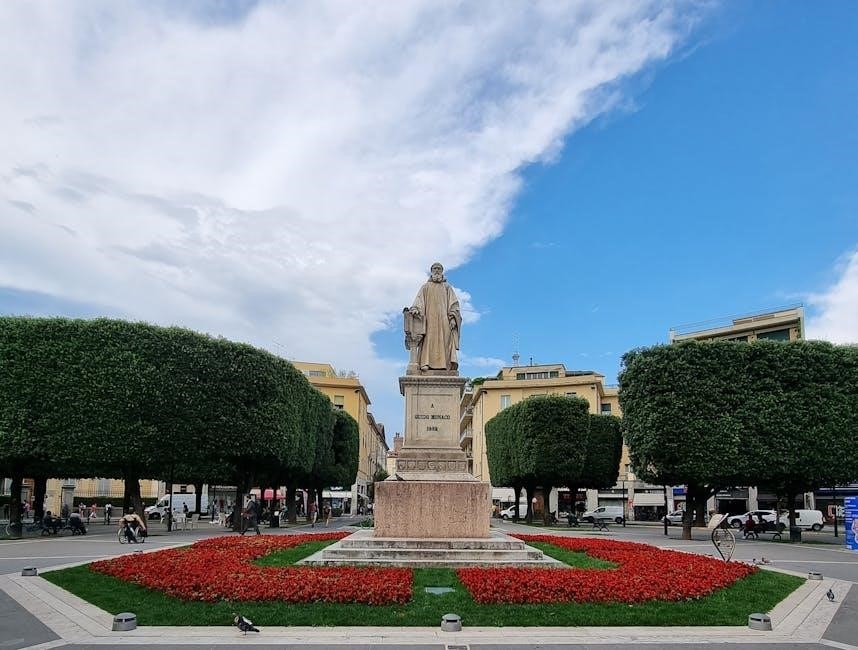
The Themes of the Film
The film explores themes of hope, imagination, and resilience, highlighting the human spirit’s ability to find beauty amidst adversity and oppression, emphasizing love and survival.
4.1 The Power of Hope and Imagination
Guido Orefice exemplifies the transformative power of hope and imagination. Throughout the film, he uses creative storytelling and humor to shield his son from the harsh realities of their circumstances. By framing their life in a concentration camp as a game, Guido ensures his child’s innocence and optimism are preserved. His imagination not only provides comfort but also becomes a survival tool, highlighting the resilience of the human spirit. This theme underscores how hope, even in the darkest times, can create meaning and sustain life.
4.2 The Struggle Against Oppression
Guido Orefice’s story is deeply intertwined with the struggle against oppression, set against the backdrop of Fascist Italy and Nazi occupation. As a Jewish man, he faces systemic persecution, yet his resilience and humor become subtle acts of defiance. Even in the concentration camp, Guido challenges oppression by maintaining his dignity and shielding his son from the harsh realities. His imaginative storytelling and refusal to surrender to despair symbolize the human spirit’s resistance against tyranny. Through his actions, Guido embodies the quiet yet powerful struggle for survival and hope in the face of overwhelming oppression.
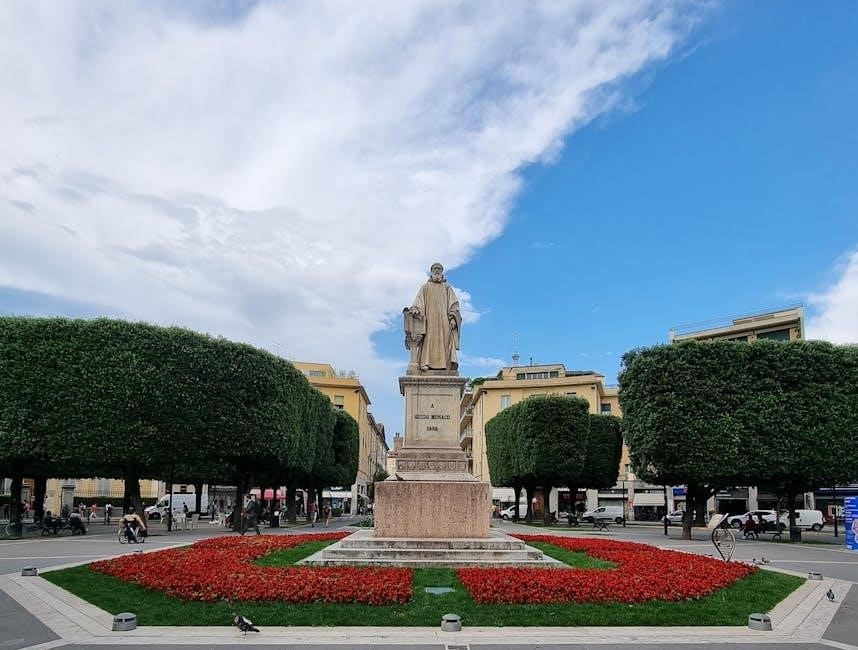
Roberto Benigni’s Portrayal of Guido
Roberto Benigni directed and starred as Guido Orefice, bringing depth and humor to the character. His performance earned him an Academy Award, making the role iconic and unforgettable.
5.1 The Actor’s Performance and Awards
Roberto Benigni’s portrayal of Guido Orefice in Life is Beautiful was widely acclaimed, earning him the Academy Award for Best Actor in 1999. His performance masterfully blended humor and pathos, capturing the character’s resilience and creativity. Benigni’s ability to convey Guido’s optimism and love for life, even in the darkest moments, resonated deeply with audiences worldwide. This role not only showcased his acting prowess but also solidified his status as a leading figure in Italian cinema, leaving an indelible mark on film history.
5.2 The Impact of the Film on Benigni’s Career
Life is Beautiful catapulted Roberto Benigni to international acclaim, solidifying his reputation as a versatile actor and director. The film’s global success introduced his unique blend of humor and emotional depth to a broader audience, making him a household name. This recognition opened doors to new opportunities, showcasing his talent on a worldwide stage. The film’s legacy continues to influence his career, as it remains one of his most iconic works, further cementing his status as a master of Italian cinema and a storyteller capable of blending comedy with profound human themes.
The Legacy of “Life is Beautiful”
Life is Beautiful remains a timeless masterpiece, celebrated for its emotional depth and universal themes. Its cultural significance endures, inspiring audiences with its message of hope and resilience.
6.1 Cultural Significance and Reception
Life is Beautiful has left an indelible mark on global cinema, earning widespread acclaim and winning three Academy Awards. Its unique blend of humor and drama resonated deeply with audiences, making it a beloved classic. The film’s ability to balance lighthearted moments with the gravity of the Holocaust showcased the power of hope and resilience. Guido’s story has inspired millions, proving that even in darkness, humanity and imagination can prevail. Its timeless message continues to captivate viewers, solidifying its place as a cultural treasure and a testament to the human spirit.
6.2 Why the Film Remains Timeless
Life is Beautiful remains timeless due to its universal themes of hope, imagination, and the resilience of the human spirit. The film’s emotional depth, paired with its delicate balance of humor and tragedy, creates a profound connection with audiences. Guido’s unwavering optimism and creativity in the face of adversity inspire viewers across generations. Its exploration of love, family, and survival transcends time, making it a cherished story that continues to resonate globally. The film’s ability to evoke both laughter and tears ensures its enduring relevance and appeal.

